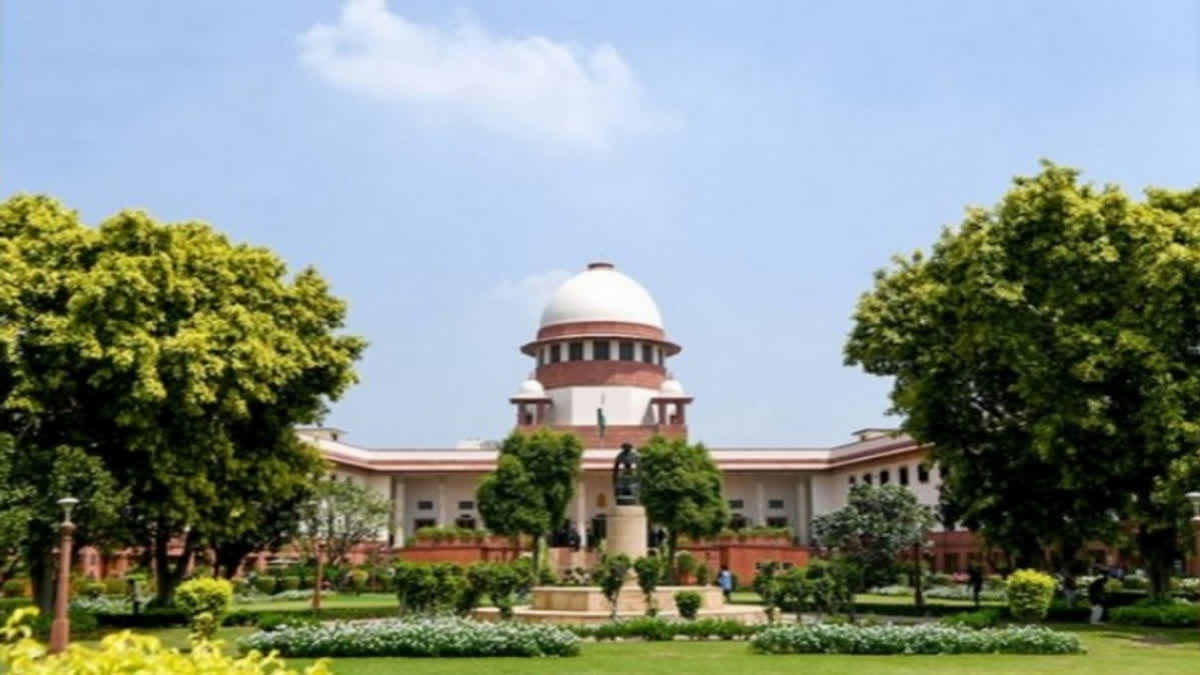New Delhi: The Supreme Court Wednesday nixed the election notification for Ladakh Autonomous Hill Development Council (LAHDC) in the Kargil region, the election process was initiated last month, and ordered issuance of a fresh notification within seven days from today. The apex court said where issues crop up, indicating unjust executive action or an attempt to disturb a level-playing field between candidates and/or political parties with no justifiable or intelligible basis, the constitutional courts are required, nay they are duty-bound, to step in.
A bench comprising Justices Vikram Nath and Ahsanuddin Amanullah said: “It would not be out of place to mention that this court can even turn the clock back if the situation warrants such dire measures. The powers of this court, if need be, to even restore status quo ante are not in the realm of any doubt”.
The bench said that it is the appellants, who by virtue of sheer non-compliance of the High Court’s orders, be it noted, without any stay, can alone be labelled responsible for the present imbroglio. "These stark facts cannot be broadly equated with other hypothetical scenarios, wherein the facts may warrant a completely hands-off approach”, said Justice Amanullah, who authored the judgment on behalf of the bench.
The bench said this case constrains the court to take note of the broader aspect of the lurking danger of authorities concerned using their powers relating to elections arbitrarily and thereafter, being complacent, rather over-confident, that the courts would not interfere. “Conduct by authorities as exhibited herein may seriously compel the Court to have a comprehensive re-think, as to whether the self-imposed restrictions may need a more liberal interpretation, to ensure that justice is not only done but also seen to be done, and done in time to nip in the bud any attempted misadventure”, said the bench.
Justice Amanullah said with a sense of anguish, it would not be wrong to say that the instant judgment has been invited upon themselves by the appellants.
The apex court was dealing with the controversy arising out of a denial of the plough symbol to the Jammu and Kashmir National Conference. The bench dismissed the appeal filed by the UT administration against the High Court’s division bench order of August 14 upholding the single bench decision to allot the symbol to the party.
The bench also imposed Rs one lakh cost on the administration while holding that JKNC is entitled to the exclusive allotment of the plough symbol for its candidates. “The orders of the High Court, in our considered opinion, were in aid of the electoral process, and no fault can be found therewith”, said the bench.
The top court said the additional solicitor general's submission that nobody representing JKNC had filed his/her nomination form, by the last date notified, is inapposite, inasmuch as in the position existing, no candidate/representative affiliated with JKNC could have filled up the form as the plough symbol was neither a reserved symbol nor a free symbol, and thus, could not have been opted for by any candidate when filing the nomination form. The bench said the serious consequence was that the JKNC identity as a political party was eclipsed, right before the election to the LAHDC, where it was the incumbent party in power. The Additional Solicitor General represented the UT.
The bench said, "The reason that the Courts have usually maintained a hands-off approach is with the sole salutary objective of ensuring that the elections, which are a manifestation of the will of the people, are taken to their logical conclusion, without delay or dilution thereof. In the context of providing appropriate succour to the aggrieved litigant at the appropriate time, the learned Single Judge acted rightly”.
The bench said the UT administration not only denied the plough symbol to the party but left no stone unturned not only to resist but also to frustrate its cause simply by efflux of time.
JKNC case is that the 'plough' symbol is reserved for it as it was recognized by the Election Commission of India as a state party of Jammu and Kashmir. The counsel, for the UT Ladakh, had argued that JKNC was not a recognized state party in Ladakh, therefore it could not claim vested right over the reserved symbol.



